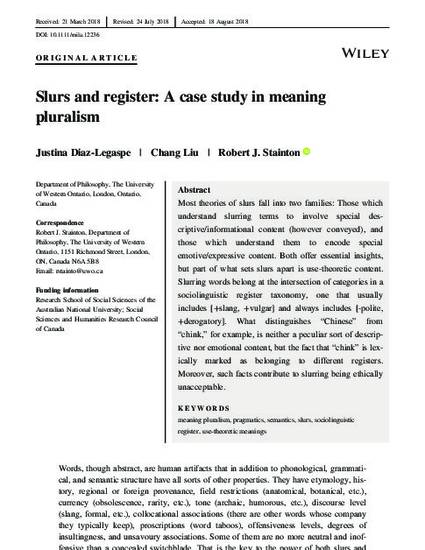
Article
Slurs and Register: A Case Study in Meaning Pluralism
Mind and Language
(2019)
Abstract
Most theories of slurs fall into one of two families: those which understand slurring terms to involve special descriptive/informational content (however conveyed), and those which understand them to encode special emotive/expressive content. Our view is that both offer essential insights, but that part of what sets slurs apart is use-theoretic content. In particular, we urge that slurring words belong at the intersection of a number of categories in a sociolinguistic register taxonomy, one that usually includes [+slang] and [+vulgar] and always includes [-polite] and [+derogatory]. Thus, e.g., what distinguishes ‘Chinese’ from ‘chink’ is neither a peculiar sort of descriptive nor emotional content, but rather the fact that ‘chink’ is lexically marked as belonging to different registers than ‘Chinese’. It is, moreover, partly such facts which makes slurring ethically unacceptable.
Keywords
- meaning pluralism; pragmatics; semantics; slurs; sociolinguistic register; use-theoretic meanings.
Disciplines
Publication Date
2019
Publisher Statement
Pre-publication draft
Citation Information
Justina Diaz-Legaspe, Chang Liu and Robert J. Stainton. "Slurs and Register: A Case Study in Meaning Pluralism" Mind and Language (2019) Available at: http://works.bepress.com/robertstainton/140/
